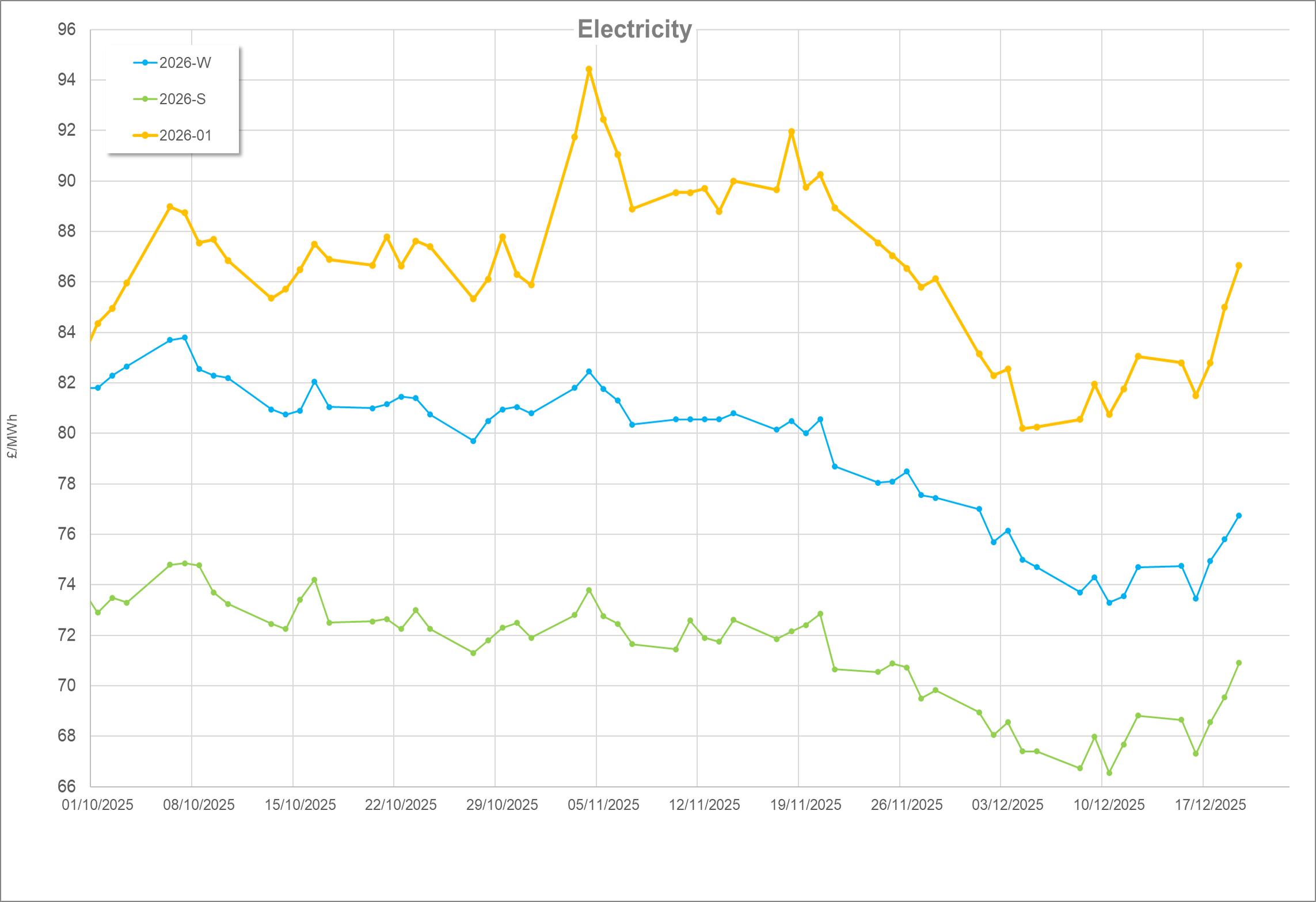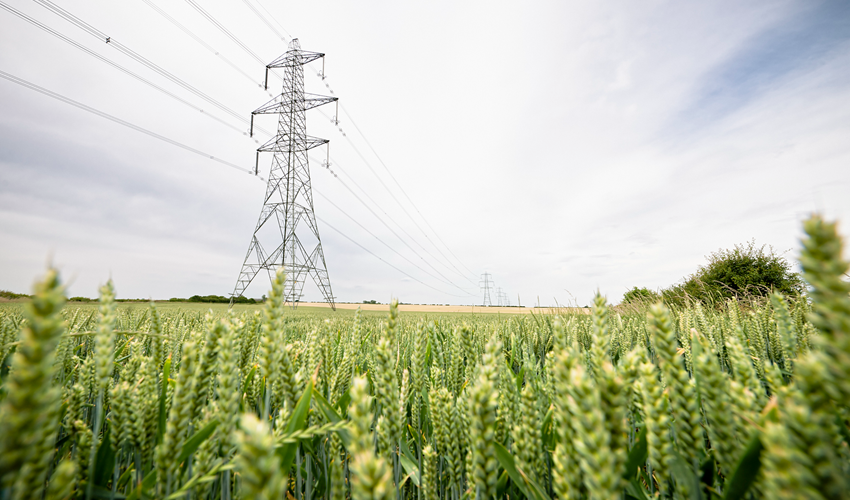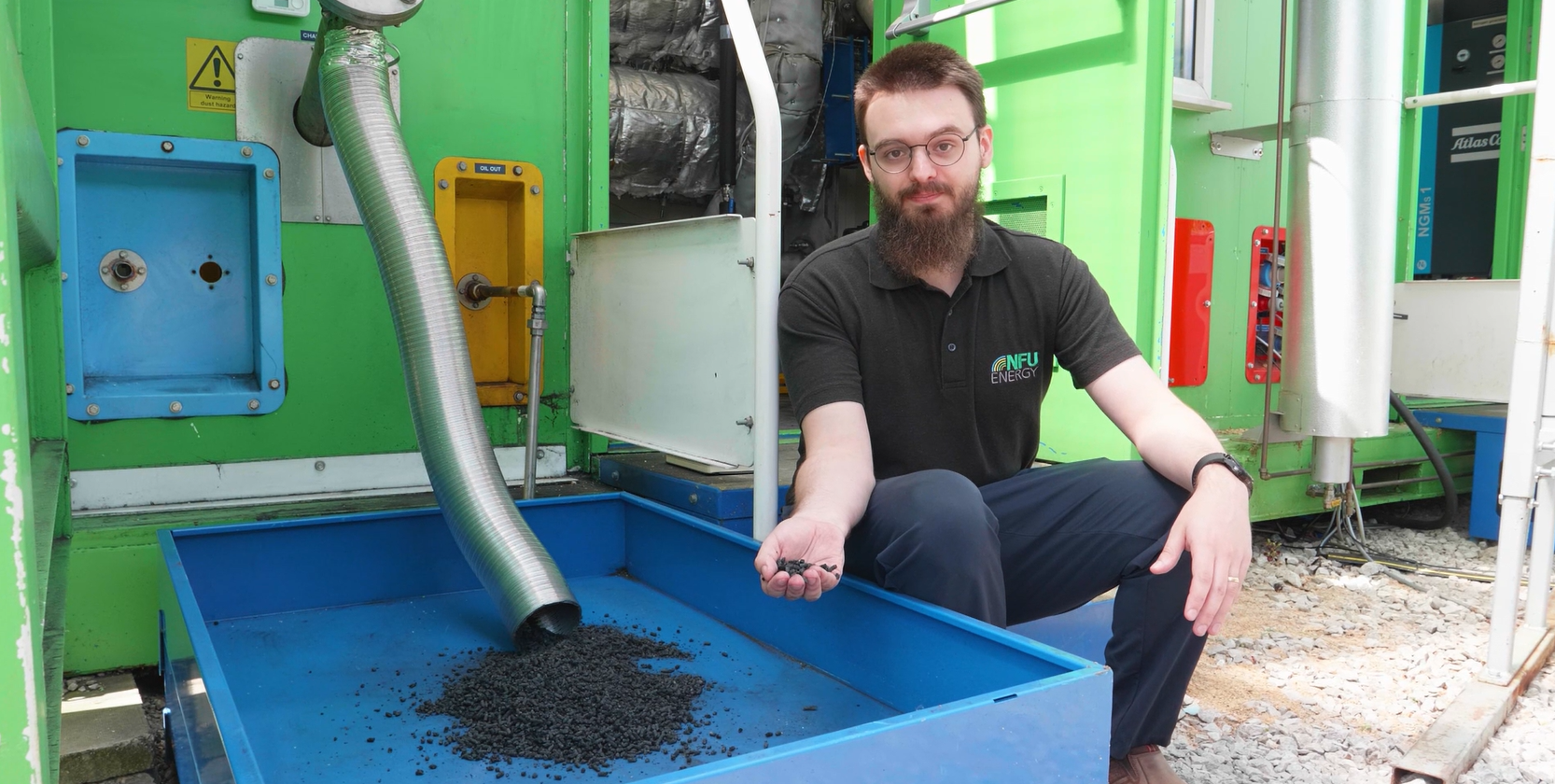What is Innovate UK?
This is the UK’s national innovation agency, part of UK Research & Innovation which invests in science and research in the UK. It supports businesses that develop and commercialise new products and services in all sectors, and naturally, horticulture and agriculture are included.
Two projects with funding support from Innovate UK are well under way. These aim to address two of the pressing environmental issues facing UK farming: the need to find alternatives to gas for the heating of glasshouses where fruit and vegetables are grown year-round; and the problem of cattle releasing methane, a gas responsible for climate change. Both projects align with the NFU’s vision of achieving Net Zero carbon across farming.
The future of heat for horticulture
It has long been established that the world’s fossil fuel dependence must end. During the second half of 2021, the need to enact this received an unmistakeable push, as natural gas prices soared: having previously stood at around 50p per therm in the UK, by the end of 2021 wholesale market prices had quintupled, and settled in early 2022 at around £2 per therm; but with supplies to Europe affected by the war between Russia and Ukraine, they have passed £4 and will rise further. As the carbon intensity of UK electricity falls, the UK government is keen to see heat pumps replacing gas heating, but this technology is not suited to every application – and the UK electricity network will need to adapt fast, if it is to meet rising demand from heat pumps and electric vehicles.
A further problem for the horticulture sector is that indoor growers traditionally use their gas heating boiler’s exhaust gases to enrich indoor CO2 levels, boosting growth. With heat pumps replacing their boilers, where will growers obtain their much sought-after CO2 (whose market is also adversely affected by the gas price)?
A possible answer comes from the industrial sector, which has always created waste heat and CO2 by-products that would be of use to growers. Heat can be recovered and upgraded from many industrial processes and waste streams, for example sewage plants.
Waste Heat To Fruit & Veg
The first Innovate project, Waste Heat To Fruit & Veg, therefore aims to “match-make” industrial waste heat producers with growers seeking alternative sources of heat and CO2.
It is doing this by identifying the forms in which heat and CO2 might be available from industry, and whether these are suitable for growers. Then it will map the national hotspots for both sectors, and invite interested parties to meet. Ultimately, to take advantage of this synergy, two partnering businesses would need to be located side by side; therefore some rethinking is required, but, if a grower can utilise waste heat and CO2 instead of burning gas, relocation is clearly worthwhile in the long run.
This project is being delivered by NFU Energy in partnership with District Eating, specialists in industrial energy and waste heat, and will run until the start of 2023.
The drawbacks of dairy herds
Although the greenhouse effect of CO2 is well known, unfortunately many other natural and man-made gases have a far higher global warming potential when released into the atmosphere. One of these is the hydrocarbon Methane, CH4. This is released from various sources, from landfill sites and coal mining to melting Arctic sea ice and the digestive systems of ruminants. In 2015, well over half of all global dairy operations’ emissions consisted of methane from enteric fermentation. As dairy herds increase in number, this becomes more of a problem, and research is under way into ways to reduce the emissions, or to recover them before they reach the atmosphere. The Moo-thane project takes the latter approach.
Moo-thane
The Moo-thane project, funded by Innovate UK, considers the possibility of recovering methane from the air in a cattle shed, where it is more concentrated than in the open, and therefore easier to capture. If the air can be centrally extracted and passed through scrubbing equipment, methane can be removed without reaching the atmosphere where it would contribute to climate change. The technology involves forcing the air through a Metal Organic Framework, in lattice form, where methane is adsorbed in a chemical reaction assisted by a temperature swing, then desorbed as lean fuel which can power a turbine to generate electricity. This concept is still at the design stage, with a prototype awaited.
The main challenge faced by the project is the heavily ventilated nature of UK dairy sheds, some of which provide little more than shelter from wind and rain. This is because cows are very tolerant of lower ambient temperatures. As a result, the indoor concentrations of methane may be lower than the technology can usefully process.
The Moo-thane project is being delivered by a team comprising Johnson Matthey, NFU Energy, Durham University and the University of Nottingham, and will run until spring 2023.




